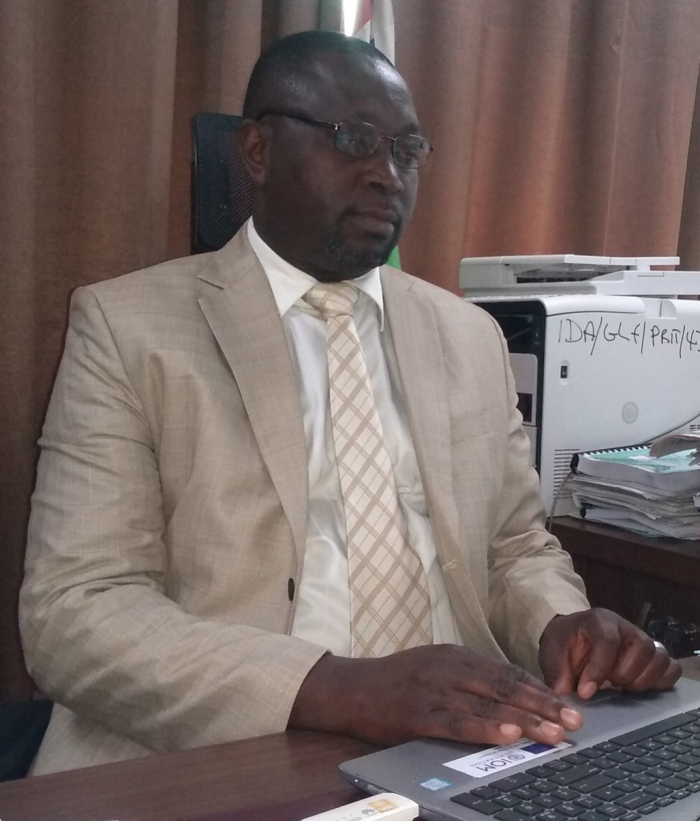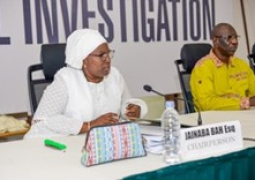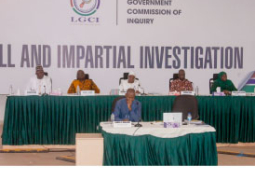
Louis Moses Mendy, the permanent secretary at the Ministry of Basic and Secondary Education (MoBSE), has said over 60% of Gambian school going children were vaccinated against the coronavirus during a mass vaccination campaign that was rolled out by the country’s ministry of health.
“The number of students who got vaccinated during the vaccination campaign was high. This was very impressive. In fact, in some regions, the number of students who were vaccinated was good. This is a positive development for the ministry.”
“Besides, according to a report I got from UNICEF and the Ministry of Health showed that the last exercise that was done in our schools was very impressive. The statistic shows that over 60 to 80% of students were vaccinated. I can tell you that a considerably very high percentage of students got vaccinated against the deadly pandemic,” PS Mendy said.
“When the country registered the first covid-19 case in March 2020, it warranted the closure of schools for a considerable number of months. This led to the loss of 265 contact hours before we resumed in October 2020. That in itself affected us. As you may know, we have a target of 880 hours per-annum in terms of contact hours. Therefore, having lost 265 contact hours is definitely not helpful and it will require some mitigation measures with a view to be able to catch-up so as to enable students to cover their required syllabus.”
“Naturally when a pandemic hits a country, usually everyone will be affected. During those days also, we have a lot of public outreach in which I even encourage parents to allow their children to come to school. In fact, I even suggested that the schools are even safer than the places the children were exposed to; like the markets, the playgrounds and other places.”
“This, among others, plays a significant role in ensuring that quite a number of students were vaccinated.”
“In the beginning when schools opened, the schools’ attendance was very poor. But again as we advanced, we saw a great improvement in the attendance. However, covid-19 itself comes with a lot of concepts and notions and perception. Everybody has a theory about it. So that affected not only the students but even the teachers and the parents and at the end parents held some of their children from going to school which affected the schools attendance,” he posited.
When the vaccination was rolled out in the country, he added, the Ministry of Basic Education was considered a priority as a frontline.
“I was lucky to be among the people who were vaccinated when the first vaccination was rolled out at the State House. This was done as a way of encouraging and leading by example in order for my colleagues at the education sector to take the vaccine so that they can be prevented from getting the virus.”
“The only impact we have was that some parents held their children which affected schools’ attendance. Some students, especially the grade 9 and grade 12 students were a little bit affected because they were not able to cover their entire syllabus due to the absenteeism of students.”
Therefore, parents not allowing their children to go to schools affected our coverage and our strategies in achieving quality education and the normal contact hours for the year 2020 and 2021.”
Jainaba Dampha, Wellingara, West Coast Region, and a mother of three school going children, said: “The active sensitisation from health workers and the parents teachers association was among the reasons why I allowed my children to get vaccinated. It was clear to us that the vaccine was safe and it had no health implications that were the reason I allowed my children to be vaccinated.
Again, I encourage other parents to allow their children to be vaccinated with a view to prevent them from the virus."
“The perception of the people about the virus was one issue that was discouraging many from allowing their children to get the vaccine,” Isatou Jallow, another parent said.
However, with the massive sensitisation from all stakeholders, we later realise that the vaccine was safe, hence I allow my children to get the jabs. After taking the jabs, they didn't get any complications or adverse effects," she told our reporter.
For her part, the Minister of Basic and Secondary Education, Claudiana Cole, said: “The covid-19 vaccination on school going children has a positive impact. There was a positive impact in the sense that we don’t receive any negative report about the impact of the vaccine on the school going children. That’s a welcome development to us. We don’t receive any information of any adverse effects and no parent has come back to complain to us about the virus.”
“I don’t get any information from the region and from the schools that their children were negatively affected as a result of the vaccine but rather it has helped to keep the children safe.”
This story was produced with support from Journalists for Human Rights (JHR), through its Mobilizing Media in the Fight Against COVID-19 in partnership with Kaba Communication and The Point Newspaper.





